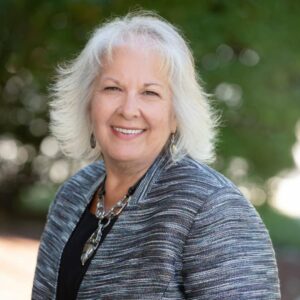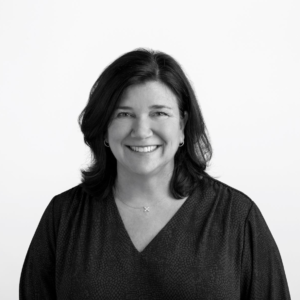One-on-one with… Ruta Kadonoff, Pioneer Network
It’s Ruta Kadonoff's job to draw out the best in people. As the newly appointed executive director of Pioneer Network, she’s in a position to steer the culture for the organization, its annual conference and the long-term care industry at large. Long-Term Living’s Senior Editor Nicole Stempak spoke with Kadonoff about how she’s trying to inspire change and lead by example following her first Pioneer Network annual conference.
Your first opening keynote as executive director of Pioneer Network was a chance to set a tone for your tenure. What did you want to say?
My speech was largely based on this weekend I spent with some of the founders. I wanted to share with people what I took from them because this movement is about building culture, and culture is shaped by the history, tradition, ritual and knowing what came before. Our conference each year draws about 50 percent new attendees. It think it’s important for them to know about our history. That set of values and principles articulated at the very first meeting haven’t changed because they haven’t been reached yet as a society. It’s important we reference back to them because that’s what we’re trying to create.
Now that you’re settled in, what changes do you want to bring to Pioneer Network?
It’s probably less changes and more where do I think our priorities are. We’re going to have an amazing opportunity when CMS releases the final nursing home regulations. We really want to ensure the interpretations and the direction CMS goes with implementing that rule reflect our values. We want to make sure we’re interpreting person-directed care in the broadest possible way and that expectations are high. We feel this rule change will potentially drive some behavior change that we hope to be able to shape.
What culture of leadership are you striving towards?
What I admire and what I aspire to is being the leader who says, ‘What matters is what we’re trying to accomplish.’ I like that team approach to things. I firmly believe in the statement that you can achieve anything if you don’t care who gets the credit. I want us to figure out who else we can work with and find other people who feel the same way. I feel when we jockey for position and argue over resources, it all gets lost in that. So for me, it’s just about being about our work.
I have a small but mighty team of amazing women. I see myself as learning from them. I want to continue down that path of making sure everybody’s feeling like they’re getting to use their strengths and that we’re sharing the burden of responsibility and sharing the workload. You’d have to ask them if they feel like I do my fair share of that.
Why is Pioneer Network different from other industry conferences?
I think people come here for a very different reason in terms of what they’re looking for from us versus what they might be looking for from some of the other association meetings where the focus is typically more on quality care and ‘How do I maximize my business outcomes,’ whatever they may be. We don’t tend to focus on that upfront. This is an area we do need to do more work in making the link for people between doing the right thing and it being the good thing in terms of what the outcome is for them as an organization and a business. Right now, that link is there but it’s not as strong as it could be.
We want to make a stronger link between culture change, person-directed care and business success so it’s more compelling to those who may not just be on the path of their own volition. We want to make it be the thing they have to do to succeed.
What’s the difference between culture change and person-directed care?
Person-directed care is the way you provide care. It’s a set of practices, but what makes that happen—and stick—in an organization is the organizational culture. That culture is going to shape the kind of care staff provides. It’s a culture of empowerment and relationship at every level within an organization from management to staff to residents that creates the possibility for real person-directed care to happen.
How can readers enact change?
It’s all just about being flexible, being open, listening and sharing power and decision-making with the people who know the situation best. Problem-solving closest to whatever the situation is. It’s not like one day you come in and say, ‘OK we’re doing self-scheduling.’ There’s a process to get people comfortable with it and set those parameters.
How can the long-term care industry be flexible despite the parameters?
I do think culture can overcome even those obstacles or barriers that people put up. It’s never going to be a work-from-home job. But you can make it a job that works better for people. One way I think that it is possible for that to work is The Green House Project ethos, which uses self-directed work teams to self-schedule. In a self-managed team, staff make up the schedule, and they cover for themselves. It’s accountability to each other. Flexibility, freedom and empowerment comes with accountability, and they have to go hand in hand. When they do, they work. People who have a very narrow view of the direct care worker as a cog in a machine feel like, ‘Oh we can’t leave those decisions to them. They won’t be responsible enough.’ Well, really you probably just never gave them the chance.

Nicole was Senior Editor at I Advance Senior Care and Long Term Living Magazine 2015-2017. She has a Journalism degree from Kent State University and is finalizing a master’s degree in Information Architecture and Management. She has extensive studies in the digital user experience and in branding online media. She has worked as an editor and writer for various B2B publications, including Business Finance.
Related Articles
Topics: Articles , Executive Leadership , Leadership











